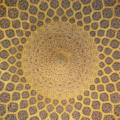 In my first post on Taoism, I mentioned that the Tao Te Ching is the central text within Taoism. What many don’t realize is that the book is not only a compilation of philosophical wisdom about the Tao but was intended as a guide-book for government leaders.
In my first post on Taoism, I mentioned that the Tao Te Ching is the central text within Taoism. What many don’t realize is that the book is not only a compilation of philosophical wisdom about the Tao but was intended as a guide-book for government leaders.
According to Taoism, leaders should influence by example rather than by force, but more importantly, they should drop their own desires. By so doing, they allow the natural current of existence, the Tao, to flow without obstruction.
Why is this important? Well, not only is it unwise for puny humans to roadblock the Cosmic Force, it’s delusional. It can’t be done, and in the process of realizing this, one might very well become a human-shaped splat alongside the Cosmic byway. So instead, Taoism offers the following tenets by which we should live. These, it asserts, will not only make it easier on us but will ensure that we aid and abet in the holistic scheme of things, rather than just get in the way.
Yin and Yang
All natural phenomena, Taoists believe, was generated and continues to be affected by the alternation between yin and yang, the opposite, yet inseparable properties inherent to everything within existence. In the words of Robin Wang, “these properties form “a mutual whole (for example, there cannot be the bottom of the foot without the top). A way to illustrate this idea,” he says, “ is to postulate the notion of a race with only men or only women; this race would disappear in a single generation…The interaction of the two gives birth to things.”
In addition, “Yin and yang transform each other: like an undertow in the ocean, every advance is complemented by a retreat, and every rise transforms into a fall. Thus, a seed will sprout from the earth and grow upwards towards the sky—an intrinsical yang movement. Then, when it reaches its full potential height, it will fall.”
So in the continuous flow of the Tao, which consists of both the “positive and negative”, creation occurs, and when decay and then death inevitably follow, so too do new birth and growth. As Mark Cartwright writes in his article on Yin Yang within the Ancient History encyclopedia, “the ever-changing relationship between the two poles is responsible for the constant flux of the universe and life in general.”
Wu-Wei
Another central Taoist concept, wu-wei, promotes harmony through non-action. Remember, the Tao moves in patterns, not by any sentient inclination. The art of going with the flow, or “non-action,” merely takes this into account before acting.
“From the perspective of classical Taoism, Western humanism makes the mistake of assuming that the ability to intervene in life’s events translates into a moral duty to do so. The…teaching of the Tao Te Ching is that humans are indeed capable of intervening in life’s events, but the evidence of life, which humans constantly ignore, is that such intervention is destructive to all involved and that we, therefore, have a moral duty to refrain from taking such actions.”
Russell Kirkland
And that is where I believe I’ll end this post–particularly since we still have the answers to the first post’s quiz over the Tao Te Ching’s first verse to review:
- “The Tao” can best be translated as the primal source –not God. It is not considered sentient.
The Tao is viewed as a primordial state in which energy or qi (chi), sometimes referred to as the cosmic breath that animates the universe, existed only as potential (the unmanifest Tao). At a certain point, qi was released and it then differentiated. Some were light (yang), some were heavy (yin) and between them was a point of connection. From these three states emerged all of existence. (In some respects this is similar to purusha and prakriti in the Hindu Sankhya philosophy.)
- ten thousand things include everything that is manifest (in the physical world) and limited (transient)
- What distinguishes those who see the mystery from those who see its manifestations?
If one has desires, one sees primarily the ten thousand things, i.e. physical life. If one has succeeded in dropping egotism and desires, one is then able to see or sense the Tao.

